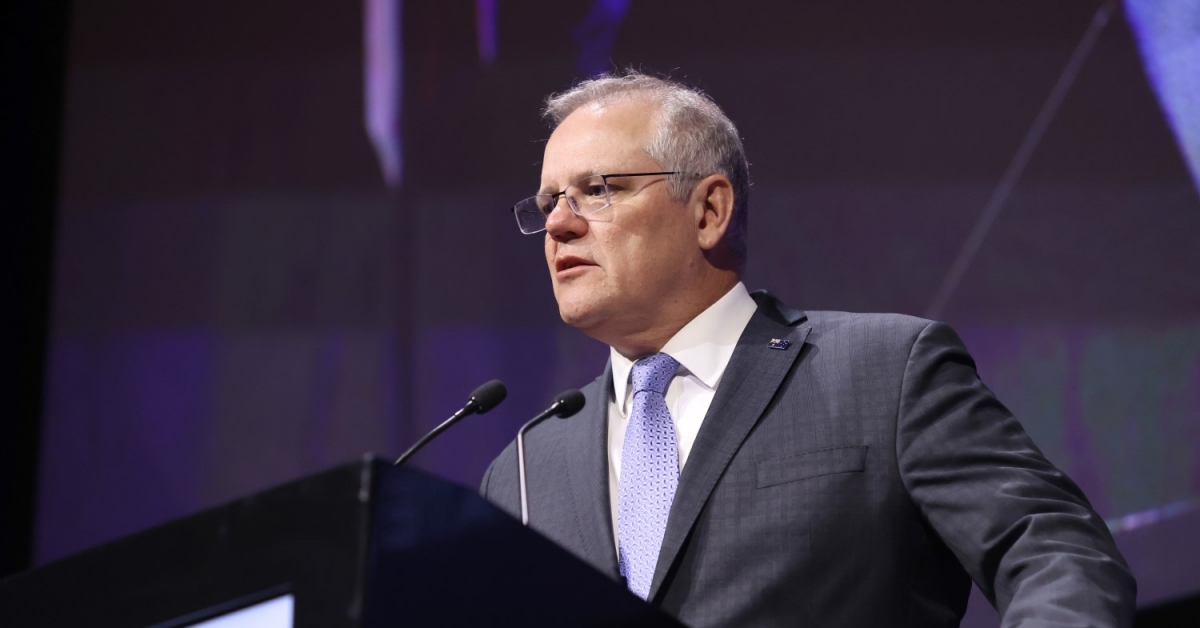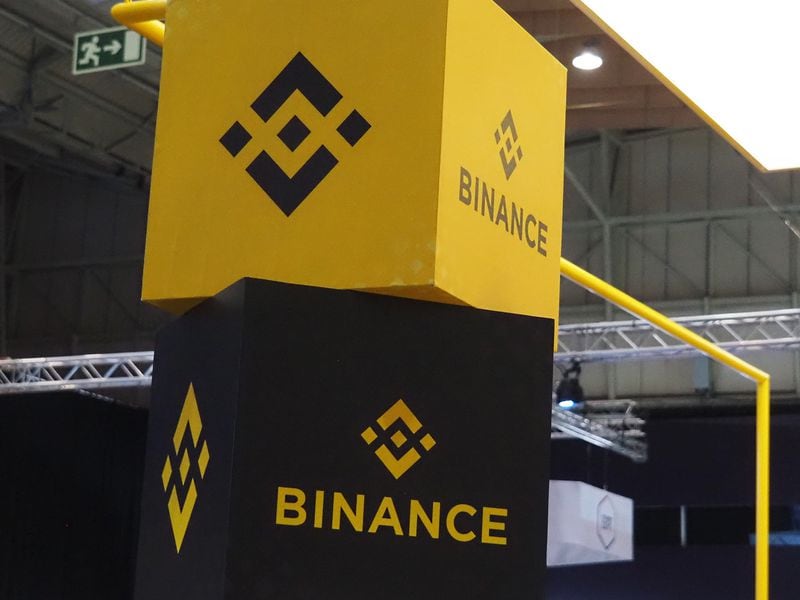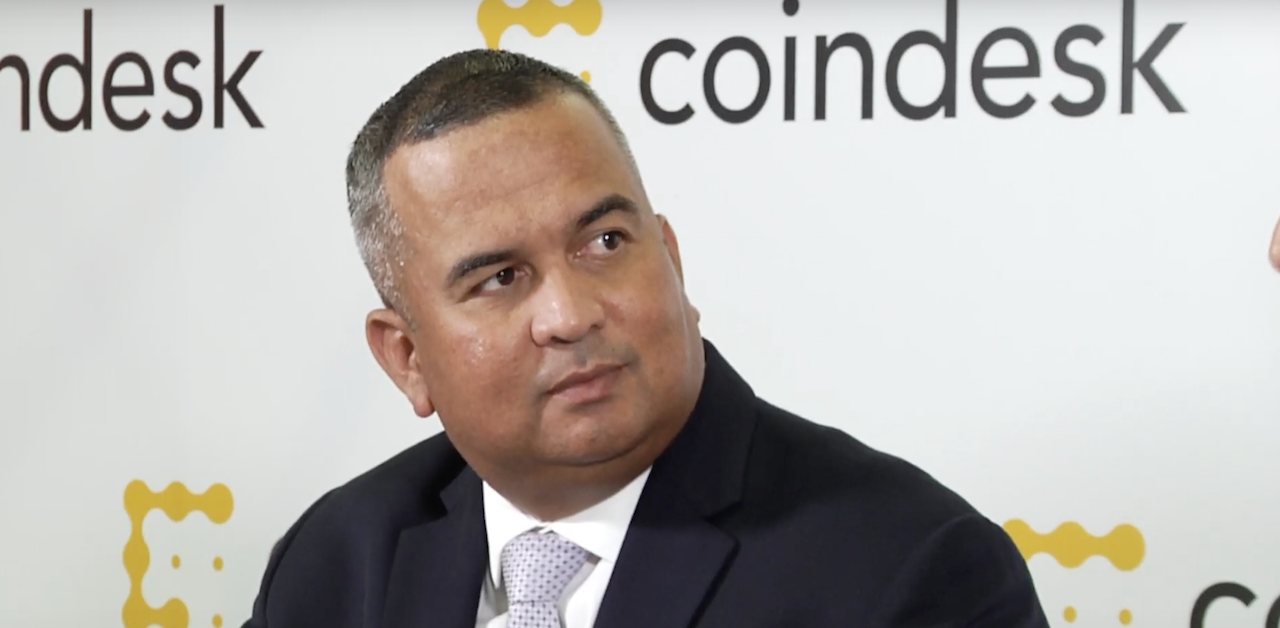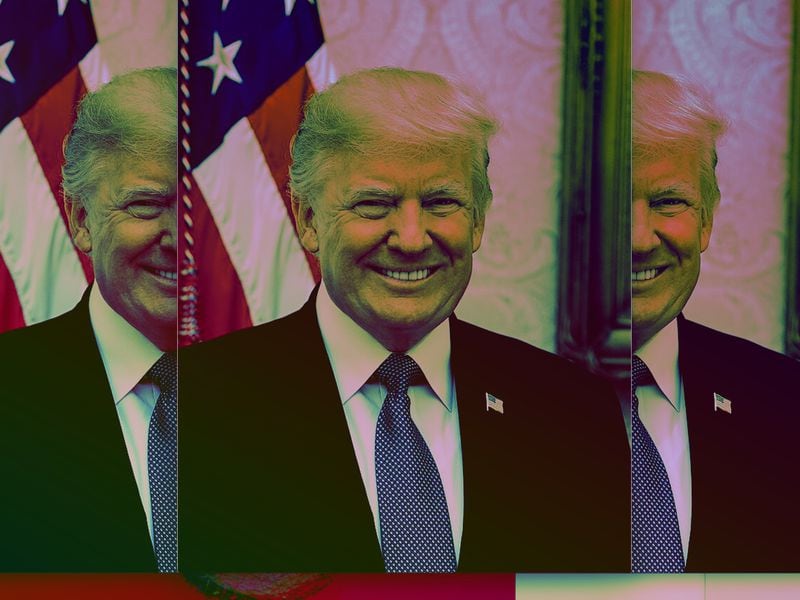Former CFTC Chair Giancarlo: A Privacy-Protecting U.S. CBDC Could ‘Take Over the World’
Join the most important conversation in crypto and Web3 taking place in Austin, Texas, April 26-28.
:format(jpg)/s3.amazonaws.com/arc-authors/coindesk/babbc463-ff00-4c88-bbf6-967e974c517e.jpg)
Fran is CoinDesk’s TV writer and reporter.
Join the most important conversation in crypto and Web3 taking place in Austin, Texas, April 26-28.
A U.S. central bank digital currency (CBDC) that protects privacy and is free of surveillance tools could set a global standard and reach mass adoption, said former Commodity Futures Trading Commission (CFTC) Chairman Christopher J. Giancarlo.
“That [U.S.] digital dollar would take over the world,” Giancarlo, co-founder of the Digital Dollar Project and senior counsel at Willkie Farr & Gallagher’s Digital Works unit, told CoinDesk TV’s “First Mover” on Monday.
He said other countries around the world – notably China – are much further along in creating a CBDC. He doesn’t see why the U.S. “can’t counter China and, to some degree, Europe with a digital currency that is operationally and transparently private.”
That need for transparency, which Giancarlo discussed in a recent CoinDesk editorial, is particularly important at a time when some U.S. lawmakers on both the state and federal levels are trying to keep CBDCs out of the country.
Last week, Florida Gov. Ron Desantis proposed legislation to ban the use of a national CBDC within the state. In Congress, Sen. Ted Cruz (R-Texas) introduced a bill that would stop the Federal Reserve from creating a direct-to-consumer central bank digital currency. Congressman Tom Emmer (R-Minn.) also introduced a bill prohibiting the Federal Reserve from issuing a central bank digital currency directly to individuals.
Giancarlo said he doesn’t entirely agree with the lawmakers but he does understand their concerns about protecting people’s privacy and their autonomy in an internet-based financial system. Lawmakers may be apprehensive because they, “are likely looking to the Chinese model,” which he said, “has already created a benchmark for what a central bank digital currency could be like.”
“Where I differ with them is the assumption that we in America, the world’s most ingenuitive nation history’s ever known, could not design a very different central bank digital currency,” Giancarlo said. He added that if the digital dollar is created using open architecture, it could potentially satisfy users’ surveillance concerns.
Not all crypto is a security
During his time at the CFTC, Giancarlo said, he was among those involved in the decision to designate bitcoin (BTC), the largest cryptocurrency by market value, as a commodity as well as the initial work on others including ether (ETH), the second-largest cryptocurrency.
Now, as federal regulators at the Securities and Exchange Commission look to label cryptocurrencies such as ETH, as securities, Giancarlo said that “it’s not correct that all crypto is a security. … Crypto is architecture. Crypto is algorithms,” he said.
The SEC and CFTC can make near-term decisions on whether a cryptocurrency is a security or a commodity, Giancarlo said, but it is ultimately up to Congress to make those determinations.
“Certainly, we very much need Congress now to step in,” he said.
Edited by Lawrence Lewitinn.
DISCLOSURE
Please note that our
privacy policy,
terms of use,
cookies,
and
do not sell my personal information
has been updated
.
The leader in news and information on cryptocurrency, digital assets and the future of money, CoinDesk is a media outlet that strives for the highest journalistic standards and abides by a
strict set of editorial policies.
CoinDesk is an independent operating subsidiary of
Digital Currency Group,
which invests in
cryptocurrencies
and blockchain
startups.
As part of their compensation, certain CoinDesk employees, including editorial employees, may receive exposure to DCG equity in the form of
stock appreciation rights,
which vest over a multi-year period. CoinDesk journalists are not allowed to purchase stock outright in DCG
.
:format(jpg)/s3.amazonaws.com/arc-authors/coindesk/babbc463-ff00-4c88-bbf6-967e974c517e.jpg)
Fran is CoinDesk’s TV writer and reporter.
Learn more about Consensus 2023, CoinDesk’s longest-running and most influential event that brings together all sides of crypto, blockchain and Web3. Head to consensus.coindesk.com to register and buy your pass now.
:format(jpg)/s3.amazonaws.com/arc-authors/coindesk/babbc463-ff00-4c88-bbf6-967e974c517e.jpg)
Fran is CoinDesk’s TV writer and reporter.









